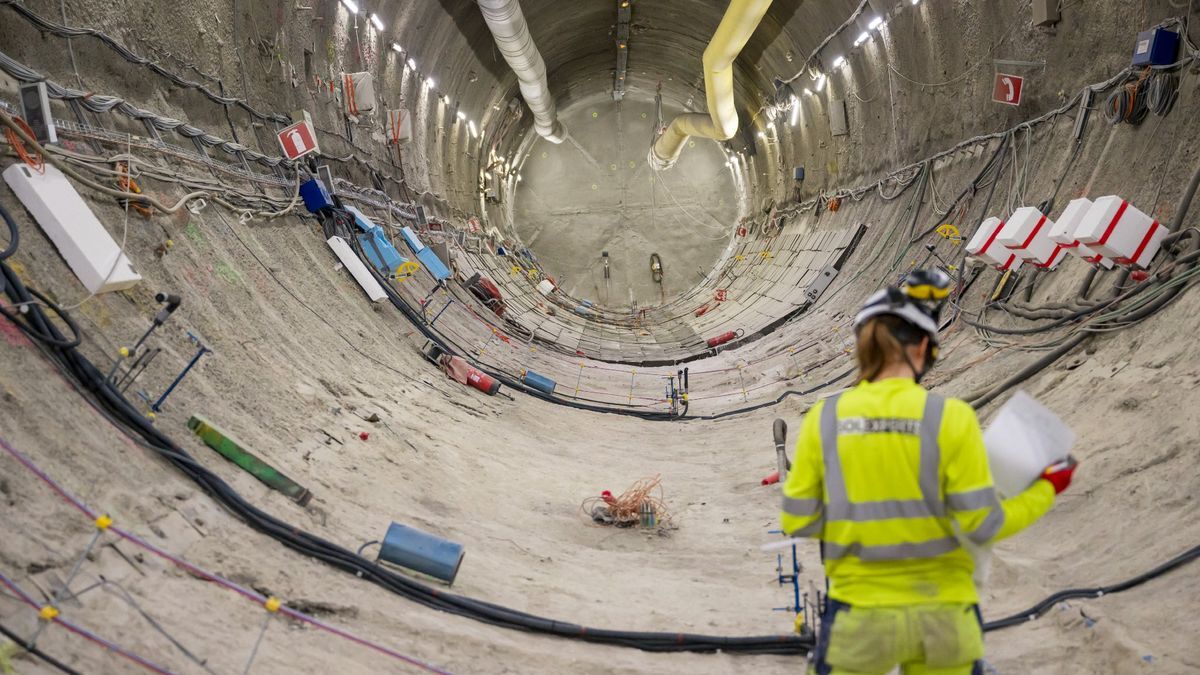“Not in my backyard” is a term normally used in conversations about proposed new housing or rail lines, but a version of it could soon be heard about one of the most dangerous materials on the planet.
[…]
Sellafield, in Cumbria, is the “temporary home to the vast majority of the UK’s radioactive nuclear waste”, said the BBC, “as well as the world’s largest stockpile of plutonium”. It’s stuck there because no long-term, high-level waste facilities have been created to deal with it.
The “highly radioactive material” releases energy that can infiltrate and damage the cells in our bodies, Claire Corkhill, professor of radioactive waste management at the University of Bristol, said, and “it remains hazardous for 100,000 years”.
The permanent plan to handle the waste currently at Sellafield is to first build a designated 650ft-deep pit to store it. Although the contentious matter of its location has yet to be agreed, the facility will hold some of the 5 million tonnes of waste generated by nuclear power stations over the past seven decades. Then, in the second half of the century, a much deeper geological disposal site will be dug, which will hold the UK’s “most dangerous waste”, such as plutonium.
[…]
But nuclear apologists told me nuclear is “safe” and “clean”?
The waste is the problem
Thats the point. Nuclear makes energy in a safe and clean way, but you can’t just exclude the waste problem from the discussion or dismiss it as “we’ll figure it out” as its so often done in this conversation.
Sure we are reusing some of it nowadays, but we still have tons globally that need to go somewhere
Yes, just to provide some detailed numbers regarding the UK from an article I posted recently in a similar community (article from May 2024):
A vast subsea nuclear graveyard planned to hold Britain’s burgeoning piles of radioactive waste is set to become the biggest, longest-lasting and most expensive infrastructure project ever undertaken in the UK. The project [UK’s nuclear waste dump] is now predicted to take more than 150yrs to complete with lifetime costs of £66bn in today’s money…The waste itself includes 110,000 tonnes of uranium, 6,000 tonnes of spent nuclear fuels & about 120 tonnes of plutonium. – Source
Sure we are reusing some of it nowadays, but we still have tons globally that need to go somewhere
At this point in time, nuclear “recycling” is a grift. The French nuclear recycling industry in particular is basically just a France-Siberia import/export business.
Oh i didn’t even know about that. Do you have a link handy?
Also upon looking it up a bit, even if we recycle some, it seems like a potentially very nasty process aaaand we still end up with a lot of waste.
I had been doubting my scepticism lately but nuclear simply isn’t the silver bullet it’s getting peddled as.
Sorry for the belated response. I am pretty sure I saw it in a Arte documentary some time ago. I don’t think I have a link and I don’t know if it’s translated in a language you speak (though Arte usually have French/German audio and English subtitles).
I can only lead you to the Wikipedia articles for Orano (the company) and MOX (the recycling material), but they don’t quite go into weird details that the documentary went into.
Arte Ultras 🧡
Ill chek their Mediathek thingy
Found it. Unfortunately, it’s a German-only reupload on YouTube: https://www.youtube.com/watch?v=dIq2KxeInxM , the relevant bit is at around 1h 11m.
It’s really not that much. Considering how much coal ash radiation and waste is created by coal power, nuclear is still one of the best long-term alternatives.
Being better than coal, relatively, does not make nuclear “good”.
What large scale power source do you deem “good”?
What is the rubric?
In many parts of the US, solar, wind, and water can’t and won’t keep up and coal is currently used. What is your “good alternative” for the Midwest (for example)?
Longer answer below, but i gotta point this out:
Not having a perfect solution doesn’t mean you’re not allowed to critically discuss the current ones.
Maybe a “good” solution for the specific areas you mention doesn’t currently exist.
Now as to why:
I don’t know the intricacies of the US power grid tbh. Where I am, the main reason why we can’t rely fully on wind and solar yet is because politicians werepaid offlobbied for by coal, decades ago, when we could’ve started to shift the whole grid and invest in tech to support solar, wind and water.Literally cut 120000 jobs in solar alone but “saved important jobs” in coal… 20000.
I’m kinda assuming this delay and ignore tactic also kneecapped the US grid’s development?
Nuclear what?
I work in hazardous materials handling and safety (general as well as hazardous materials).
The majority of the waste isn’t high-level, and can be relatively safely disposed of. The vast majority of the high-level waste at Sellafield comes from nuclear weapons manufacturing. But thanks to amazing cold-wat era record
burningkeeping, nobody really what is what. A sealed vessel could hold harmless coveralls, or toxic sludge, and nobody knows anything other than that it’s built to literally without bombing, so it’s insanely slow going.The actual civilian spent reactor fuel is a tiny fraction of what is at Sellafield, and it’s some of the easiest material to dispose of, since they’re packaged solids. The real headaches are the contaminated machinery and the nuclear weapon sludge.
So yes, nuclear power is safe and clean. Nuclear weapons being made at the cold in secret labs? Not so much. But Sellafield is only a problem because the Brits kept notes. The US dug holes in the desert and poured their nuclear sludge into them, then promptly forgot all about the. The Soviet Union did god knows what with their waste. The French poured it into the ocean.
In hazardous waste handling, the best waste is contained waste, and that doesn’t apply to any other fossil fuel. CO2 kills tens of million every year through global warming and many more die from dust, where nuclear energy deaths from all sources barely register.
Burying Radioactive Nuclear Waste Poses Enormous Risks – (Archived link)
Although it may not produce the emissions that burning fossil fuels does, nuclear power presents many other problems. Mining, processing and transporting uranium to fuel reactors creates toxic pollution and destroys ecosystems, and reactors increase risks of nuclear weapons proliferation and radioactive contamination. Disposing of the highly radioactive waste is also challenging. […]
Even without an accident, trucking the wastes will emit low levels of radiation, which industry claims will produce “acceptable” exposure. Transferring it from the facility to truck and then to repository also poses major risks. […]
The spent fuel will remain radioactive for hundreds of thousands of years, and contamination and leaks are possible during storage, containment, transportation and burial. Industry, with its usual “out of sight, out of mind” approach, has no valid way to monitor the radioactive materials once they’re buried. […]
Nuclear power is enormously expensive and projects always exceed budgets. It also takes a long time to build and put a reactor into operation. Disposing of the radioactive wastes creates numerous risks. Energy from wind, solar and geothermal with energy storage costs far less, with prices dropping every day, and comes with far fewer risks.
Addition: I posted that recently in a similar context:
IAEA-database of nuclear and radiological incidents
Note that although the list which is linked above gives an impression of the spread, diversity and frequency of incidents and accidents with nuclear power plants and radioactive transports, it is not a complete list of all nuclear incidents and accidents; different national regulators have different regimes as to which incidents to report to the IAEA and which not.
Seems like its about time to take another look at breeder reactors that can repurpose or stabilize some of that waste. Sure they’re more expensive but they solve a major problem which is also expensive.
Or maybe just accept that nuclear is not a feasible option given we have actually cheap, clean and safe renewable sources that also are more easily decentralized.



